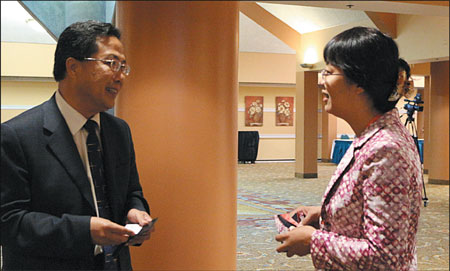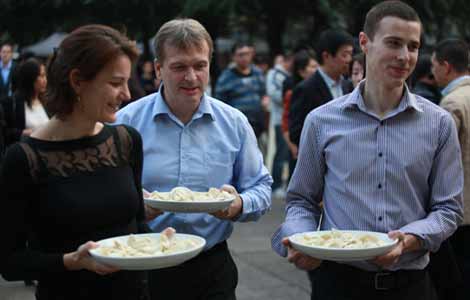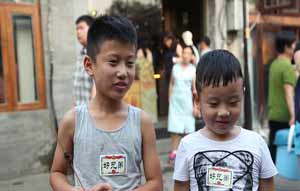Z-Park hosts a hi-tech contest
Updated: 2013-10-14 10:54
By Chang Jun in Santa Clara (China Daily)
|
||||||||
|
Wang Junming, Counselor of Science and Technology with the Chinese Consulate General in San Francisco, chats with Yang Yanru of Z-Park Sunday before the Zhongguancun -Silicon Valley Innovation & Entrepreneurship Competition kicks off. Chang Jun / China Daily |
China's leading iconic science, technology and innovation hub, Zhongguancun Science Park - or Z-Park as it's come to be known - reached beyond its national boundaries Sunday by hosting its first Zhongguancun-Silicon Valley Innovation & Entrepreneurship Competition in the San Francisco Bay Area.
Twelve finalists, filtered through several rounds of pitches and screenings, will compete for the top prizes of $50,000 cash for first, $35,000 for runner-up and $20,000 for third.
In addition, the finalists will be invited on a free tour of Z-Park in Beijing, as well as offers of mentorship by seasoned venture capitalists and entrepreneurs in the US and China.
The purpose of the competition is to encourage innovation and entrepreneurship, identify high-tech talent and promote the integration of technology and finance, said Yang Yanru, Z-Park's chief of the division of intermediary agencies, adding they are hopeful the first ever competition will bring together the most innovative startups in both Z-Park and Silicon Valley.
Wang Junming, counselor of science and technology with the Consulate General in San Francisco, said he has no difficulty distinguishing this Z-Park's event from similar startup contests. "Zhongguancun has no doubt become a landmark in China's recent scientific and technological innovation history," said Wang in a keynote speech.
Wang referenced recent news from two weeks ago, when, on Sept 30, members of the CPC Central Committee Political Bureau led by the General Secretary Xi Jinping paid a visit to Z-Park for a tour where they emphasized that China was now seeking an innovation-driven development pattern and economic growth model.
The leaders listened to presentations given by tech gurus Liu Chuanzhi, founder of PC maker Lenovo; Robin Li, CEO of search engine Baidu; and Lei Jun, CEO of smart phone company Xiaomi. They also talked with executives and scientists about research and implementation of new technologies such as additive manufacturing, cloud computing, nano materials, bio-chips and precise crop breeding, according to Xinhua reports.
"We must enhance awareness of unexpected challenges and grab the opportunities of the science and technology revolution. We can't wait, hesitate or slack off," Xi said, adding that implementing the strategy of innovation-driven development will decide the fate of the Chinese, therefore the entire society must fully realize the importance of science, technology and innovation.
Since Z-Park announced this startup contest in May, the organization has received more than 200 applications, the majority of which were rooted in the Silicon Valley, with dozens from the East Coast, Southern California and Canada. Participants included university students, researchers and scholars, and entrepreneurs.
Li Qiang, partner of zPark Venture and also one of the judges presiding over the semi-final competition on Saturday, said he was impressed by the width and depth of the projects. "They bring innovative ideas and solutions for a wide range of fields, such as technology media communications, healthcare, and new energy."
Li believes all the competitors are serious startup entrepreneurs with innovative ideas, and most of them are determined to have their projects land in Z-Park. "They are able to increase their name recognition through this platform," he added. "Z-Park is a stand out."
"Z-Park's big step to the Silicon Valley shows its sincerity and determination to lure overseas talent, it has symbolic significance," Wang said. "For entrepreneurs with innovative minds, this is the right time, right place and right people."
After 20 years in business, Z-Park now has seven subsidiary areas and is home to some 20,000 companies such as Lenovo, Baidu and Sina. The development center of Loongson, China's first general-purpose viable microprocessor, is also in the park.
"The basic startup ecosystem is in place now. We will provide returnees with preferential policies and value-added services," said Yang, adding that each year her office is subsidizing 4,000 startups' moves to Z-Park. "The momentum is strong."
junechang@chinadailyusa.com
(China Daily USA 10/14/2013 page2)
- Zhongguancun in strategic partnership with DBG
- Zhongguancun may host private bank
- Zhongguancun tech park sets out ambitious course
- Latest Zhongguancun gadgets steal show at zone's exhibit
- Zhongguancun and HK science parks sign deal
- Zhongguancun Index measures high-tech power
- 4,000 start-ups established in Zhongguancun area
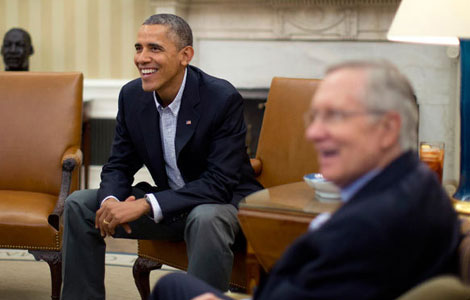
 Senate leads hunt for shutdown and debt deal
Senate leads hunt for shutdown and debt deal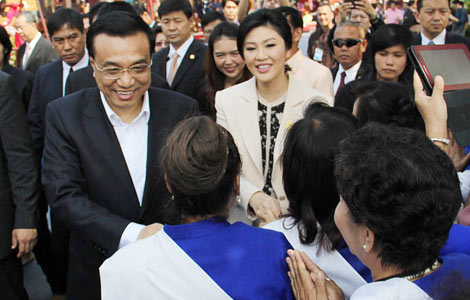
 Chinese education for Thai students
Chinese education for Thai students
 Rioting erupts in Moscow
Rioting erupts in Moscow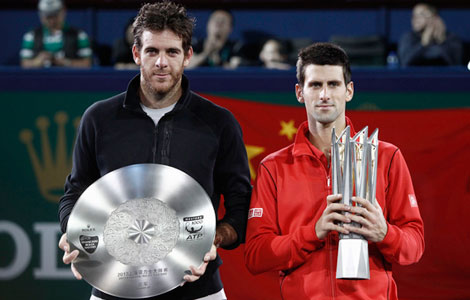
 Djokovic retains Shanghai Masters title
Djokovic retains Shanghai Masters title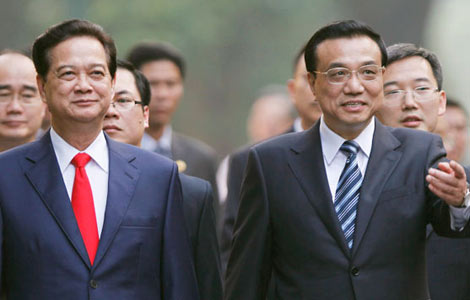
 Working group to discuss sea issues
Working group to discuss sea issues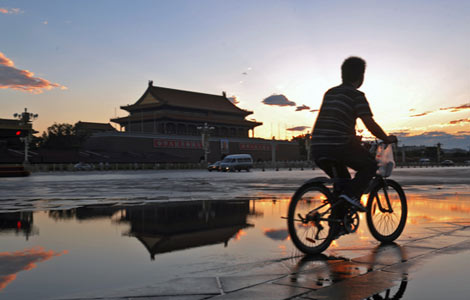
 Draft regulation raises fines for polluters
Draft regulation raises fines for polluters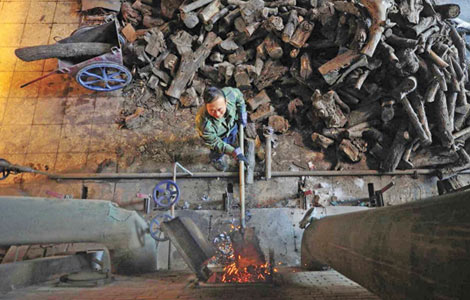
 Other measures for the capital to become green
Other measures for the capital to become green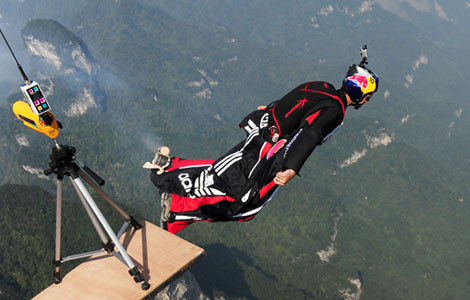
 Colombian takes wingsuit crown
Colombian takes wingsuit crown
Most Viewed
Editor's Picks

|

|

|

|

|

|
Today's Top News
Going green can make good money sense
90 killed in stampede in central India
Senate leader 'confident' fiscal crisis can be averted
China's Sept CPI rose 3.1%
No new findings over Arafat's death: official
Detained US citizen dies in Egypt
Investment week kicks off in Dallas
Chinese firm joins UK airport enterprise
US Weekly

|

|
